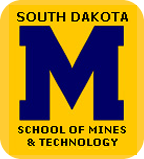 |
|
|
Advisory
Board Comments: April 29, 2004 Jon, I thought the phone conference went very well. You got your important points across to the group. I can see you have given the AB's comments some thought and action. Also I can see that a lot of work has gone into the ABET preparation. I have several general comments: 1. I think we don't teach enough about economic or business analysis. I do remember learning about the time value of money and that sort of knowledge helps me when doing that sort of analysis for writing Capital Expenditure Requests. What I didn't get was how to analyze and breakdown the costs at a plant and determines what the impact might be by changing the process in some manner. 2. I think it is good to discuss Ethics, but I'm not sure you can teach someone ethics. Maybe you can teach them the consequences of making poor ethical decisions. 3. Senior Design Project Idea - I helped out some seniors at UMR with a project to lay out an ingot casting line for a small aluminum plant. I have asked them to analyze cost, productivity, design, etc as if they were the project manager. I've attached a brief summary below. If you wanted to use this, I'd be happy to help. 4. I personally feel that Communications is either the first or second most important skill a young engineer can have. Both formal and informal modes of communication are critical. No matter how good your ideas are, if you can't get them across to your colleagues, supervisors and subordinates, you will not be successful. The best way to be recognized and advance in a company is to make a good presentation on everything you do - memos, talking, presentations, etc. Thanks again for updating us. Ray 1) I'm actually surprised you guys did so much since last year. I figured the IAB was going to recommend things and nothing would happen, but oh was I wrong. Nice job: getting a recruiter, new classes (electronic mat?, welding), addressing Dr. Stone and others retiring, getting more grants, offering classes every other year, etc. I like the recruiting part best. IMO, you need to push the "cooler" industries, like mine. Not many kids can look at an axle and get excited about increasing it's hardness, but they will get more excited when you show them how small circuits are on a computer chip and how that relates to their stupid little video games. 2) I disagreed about the economics point (I think John Walenta brought it up?). I do engineering. And to a point economics is involved, but I found that I learned nearly all of that through Dr. Han. Han brought up many examples of cost in his classes: like if you can cut $0.01/ton-ore from a ball mill, you'll save the company millions. I'm sure things are different in small companies, but in a large company we have huge sales, marketing, and accounting depts. They do the money stuff, we just give them options and recommendations. If I need details the accountants do that for me. So I don't see that more economics are needed, it's all really common sense stuff at my level. If a student has aspirations to start their own business or work for a small company they should be encouraged to take several financial courses, their advisors can help them plan that. 3) Ethics. This is a real tough one. It's super important because you need good ethics, especially to get along with others. But can you teach it? Would I have the same ethics as Dr. Howard? I doubt it. Big companies like Micron offer tons of classes on this, and they are helpful. But I think you really learn by working in teams: through interaction and learning from others. I know you've heard it before, but nothing you could teach would have given me the ethics I got through KTEQ. So encourage students to be active in campus or even community roles, that's where they'll pick up on ethics. Get them to volunteer time to charities. I actually look for that stuff on resumes. 4) Communication. This is another one that is key to succeeding. One of the biggest reasons people don't succeed at work is because they can't communicate. And I don't mean good grammar, although that is important. It's more like: make sure you share info and don't horde it; know when to meet with someone, when a call is OK, and when email is OK; communicate so your thoughts are well understood; communicate in a friendly manner; know your audience, etc. Like I said in the call, you could use the alumni more on this. Whey not give our numbers out as contacts for things other than jobs? I'd certainly be willing to help. Perhaps for some projects you can make the students communicate with someone in industry? A senior design project comes to mind but maybe some lab examples are applicable too? Like if you're teaching heat treating, why not have the students ask questions to someone at Cat to get practical answers? If nothing else, have them ask us for practical applications of class concepts. I think this not only helps them connect concepts to real world applications but gets them to communicate with supposed "professionals". And if they're going on spring break somewhere, encourage them to stop and visit an alumni for a plant tour. Whatever you do, don't have them ask for help with homework, I don't think I could do a diffusion problem to save my life. Keep it to real life scenarios. |